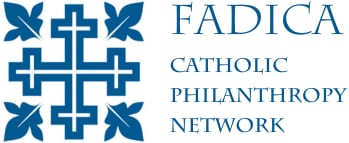New York — The leaders of several private foundations will be meeting here June 6th to discuss what’s needed to promote more innovation in Catholic schools.
The meeting, sponsored by FADICA, draws its impetus from a grant makers’ conference held last January 24-25 in Naples, Florida, entitled: Catholic Schools A New Chapter in An Old Story.
The conference attended by some one hundred philanthropists, featured the President of the National Catholic Education Association and some fifteen additional school experts who discussed financing, innovation, and ways to measure the quality of instruction in Catholic schools.
“Our Naples conference made a compelling case that unless there are more efforts nationally to help Catholic schools work more vigorously and innovatively to lead in education, we will continue to lose many of these precious institutions”, said Francis J. Butler, FADICA’s president.
The New York FADICA meeting in June will bring together funders to discuss among other things the merits of creating a publically supported national fund for Catholic school innovation.
In the mid 1990’s the American hierarchy called for a national effort to assist Catholic schools financially, but at the national level little follow up activity went forward.
Over the last twenty years many larger and mid-size Catholic dioceses have made special efforts to organize auxiliary fund raising for their schools. Most of these projects have provided scholarship support but have not been capable of undertaking more substantial help to address strategic needs.
Today there is no national funding source for Catholic schools outside of the efforts of private foundations.
Currently, there are over seven thousand elementary and secondary Catholic schools serving an estimated two and half million students. There has been a net loss of 850 Catholic schools since 1990 with a net loss of 170,000 students since the year 2000. Tuition has doubled since 1990.
In its call for a national recommitment to Catholic Schools issued in 2005, the bishops of the United States summoned the entire Catholic community to assist in addressing the critical financial questions that continue to face the schools, declaring the burden of supporting the schools can no longer be placed exclusively on individual parishes. The bishops said, “We will need to utilize the collective wisdom of the members of our Church and the society in which we live if we are to be successful.” (Renewing Our Commitment to Catholic Elementary and Secondary Schools in the Third Millennium, USCCB, 2005)
FADICA is an association of over fifty private foundations and donors. While its mission is educational, the group has been instrumental over its history in helping to launch several church-related initiatives. In the mid 1980s FADICA was instrumental in starting the National Religious Retirement Office and in the early 1990s the association, working with the hierarchy, launched a nationwide campaign for the rebuilding of the Catholic church in Eastern and Central Europe and Russia.


